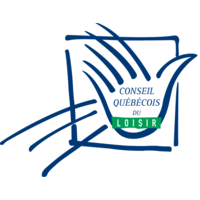
Contribution of Conseil québécois du Loisir - CQL.
The Conseil québécois du loisir (CQL) is proud to announce its collaboration with the Social Service of Commerce - National Department - Brazil (Sesc Nacional) to disseminate the reference framework on leisure accessibility and the self-diagnosis tool in Spanish and Portuguese versions. This announcement is made within the framework of the E-Week of Fair and Sustainable Tourism for All under the responsibility of the International Social Tourism Organisation (ISTO). It should be noted that this collaboration between the CQL and Sesc Nacional was carried out through the Americas section of ISTO.
We are very proud that Quebec's expertise in the field of accessibility to leisure has caught the attention of Sesc Nacional, a great Brazilian association that is a pioneer in the field of leisure and tourism for all. This recognition reflects on the project's main partners, namely the Fédération québécoise des centres communautaires de loisir (FQCCL), ESG UQAM and the knowledge transfer organisation Territoires innovants en économie sociale et solidaire (TIESS), said CQL Executive Director Sonia Vaillancourt.
Meanwhile, Anderson Dalbone, Leisure Manager at Sesc Nacional, pointed out that "In the context of the international exchanges promoted by ISTO, and particularly by its Americas section, it is very important for our work here in Brazil to be able to count on this Quebec expertise which, we are sure, will continue to contribute to our efforts in terms of accessibility to leisure activities throughout the country. Making these tools also available in Spanish is part of our mission of collaboration with all the members of this international organisation, and we are proud to share them, especially with members in the Americas".
The reference framework and self-diagnosis tool for leisure accessibility
This project originated in 2007 when the CQL and the CAP-Loisir et tourisme social partnership activity site of the Alliance de recherche universités-communautés en économie sociale (ARUC-ÉS) published "Le loisir accessible : un droit pour tous" (Accessible leisure: a right for all). Accessibility is dealt with in such a way as to take into account the cultural, financial, spatial and temporal dimensions. Then, in 2016, the self-diagnosis tool for analysing leisure accessibility was developed. It aims to support the facilitation of exchanges within leisure organisations, whether in associative, community, institutional or municipal settings, that wish to analyse and discuss their practices in terms of accessibility. It provides information on the state of accessibility to recreation in the community and helps target the interventions to be made in order to improve it.
E-Week of Fair and Sustainable Tourism for All
The International Social Tourism Organisation is launching this reflection as part of its E-Week of Fair and Sustainable Tourism for All. This event, in which more than 90 speakers representing ISTO member organisations from 21 countries are taking part, aims to make heard the voices that have always proposed using tourism as a tool for personal and collective enrichment in a context of citizenship, respect for the environment and fair business, said the President of ISTO-Americas, Sergio Rodríguez Abitia.
